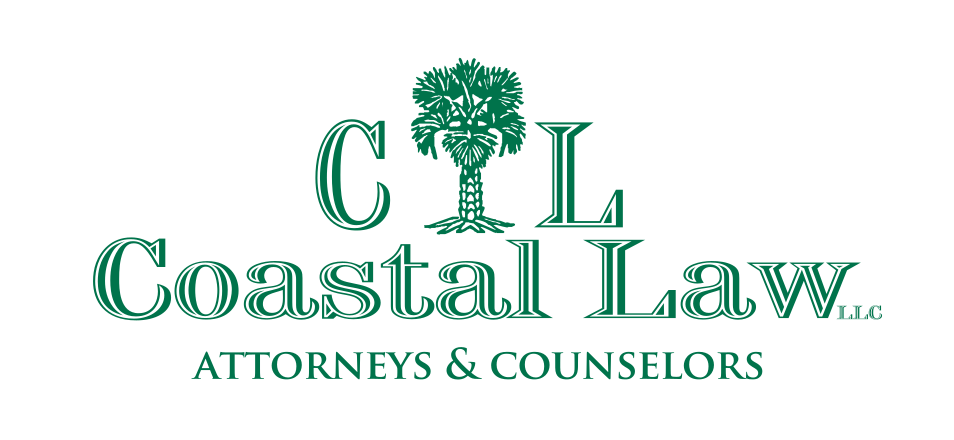If you have a potential lawsuit, you will need to know what the civil statutes of limitations in SC are for your type of claim.
If you miss the filing deadline for your lawsuit, your claims may be forever barred, and you may have no other recourse to recover compensation for the injuries or losses that you suffered.
This is just one of many reasons that you should contact a personal injury lawyer in Myrtle Beach as soon as you realize you may have a claim for damages. Whether your case involves an auto accident, defamation, or a vendor who is refusing to pay, there will be a deadline for filing beyond which you have lost the right to sue.
Below, I’ll take a look at why we have statutes of limitations in SC, what those deadlines are for different types of cases, and when there are exceptions that allow you to extend the filing deadlines.
If you have a potential civil claim, contact a SC personal injury lawyer immediately to determine what the statute of limitations is for your cause of action based on the facts of your unique case – this article provides general information, but it should not be considered legal advice for any specific case.
Why Do We Have Civil Statutes of Limitations in SC?
Civil Statutes of limitations in SC are intended to protect defendants from old claims that it would no longer be fair to force them to defend.
As the years go by, memories fade, evidence is lost, potential witnesses move away or die, and it becomes increasingly unfair to the potential defendant. If a person has a valid claim for damages, they should pursue their claim within a reasonable amount of time or they forfeit their right to make the claim.
Where did the idea of statutes of limitations begin?
I don’t know, but, in the legal system of ancient Athens, Greece, Demosthenes wrote that there was a problem with “professional accusers,” and that, to help solve this problem, a five-year statute of limitations was adopted for all cases except murder and “the prosecution of non-constitutional laws.”
Why Don’t We Just File the Lawsuit Immediately?
If you just file the lawsuit immediately after an accident or after you realize you have a claim, that would solve the problem of missing deadlines, wouldn’t it?
Except, in most cases, it does not make sense to immediately file suit. In some cases, it would result in ethical violations by the attorney, a lower recovery by the person filing suit, unnecessary litigation, or “frivolous” lawsuits that get dismissed.
Your attorney must:
- Investigate your claims before filing suit;
- Ensure that you have finished treating all injuries and that you know what any future medical costs will be;
- Research the law that affects your claims;
- Identify all potential sources of compensation; and
- In many cases, send a demand letter and attempt to negotiate a resolution before filing the lawsuit.
How Do I Know What the Start Date is for Civil Statutes of Limitations in SC?
The start date, or “date of accrual,” is the date on the calendar when you begin counting for purposes of civil statutes of limitations in SC.
In most cases, the start date will be the date of the accident or the injury that led to the claims in the lawsuit. In other cases, the start date may be the date that you became aware that you had a claim.
What Happens if I Miss the Deadline for Filing My Lawsuit?
When you do not file your lawsuit before the last day of the statute of limitations for your claims, you are forever barred from suing on that claim. If you have other, unrelated claims, you may still be able to file those if the deadlines have not passed.
What is the Statute of Limitations for Criminal Cases in SC?
Although it is uncommon for criminal charges to be filed after a substantial amount of time has passed, there are no statutes of limitations in SC for any criminal cases.
What are the Civil Statutes of Limitations in SC for Personal Injury Cases?
The deadline to file a lawsuit in SC based on negligence is three years, and this covers the most common types of personal injury cases in SC like:
- Automobile, truck, and motorcycle accidents;
- Slip and fall cases;
- Wrongful death and survivor actions; and
- Products liability cases.
Other personal injury cases that have a three-year statute of limitations include:
- Fraud;
- Insurance bad faith;
- Conversion (theft); and
- Lawsuits under the SC Unfair Trade Practices Act.
The most common civil statutes of limitations in SC are three years. You can’t assume that your deadline is three years, however, and you should always consult an attorney immediately to determine the exact date of the statute of limitations for your claim.
For example, SC Code Section 15-3-550 sets a two-year deadline for:
- Defamation – libel or slander;
- False imprisonment; or
- Any lawsuit based on a statutory forfeiture or penalty to the state.
SC Code Section 15-3-555 sets a more expansive deadline for lawsuits for damages based on sexual abuse or incest – the lawsuit must be filed within six years after the person turns 21, or “within three years from the time of discovery by the person of the injury and the causal relationship between the injury and the sexual abuse or incest, whichever occurs later.”
One-Year Civil Statutes of Limitations in SC
Some lawsuits must be filed within one year. For example, under SC Code Section 15-3-560 this includes:
- Lawsuits relating to wages claimed under a federal statute or regulation; and
- Lawsuits against the sheriff based on a prisoner’s escape.
Civil Statutes of Limitations in SC for Actions in Equity
“Claims in equity” are cases where the court is allowed to hear a claim where ordinary “legal” remedies are not enough to satisfy due process and fundamental fairness.
Actions in equity do not have a statute of limitations. These include:
- Unjust enrichment;
- Injunctions; and
- Specific performance.
They are limited, however, by what is called the “doctrine of laches.” If you know that you have a valid claim but don’t take action, and that results in “prejudice” to the other side – for example, lost witnesses or evidence – your claim may be barred by the doctrine of laches.
What are the Civil Statutes of Limitations in SC When You Sue the Government?
If you sue a government agency or government employee in SC, you may be able to file the lawsuit in either state court or federal court, depending on the facts of your case and the claims you are raising.
In state court, you must file suit under the SC Tort Claims Act, which has a two-year statute of limitations (although it can be extended to three years if you file a “verified petition” within one year).
On the other hand, if you file the claim as a civil rights action in federal court under 18 USC Section 1983, the statute of limitations is three years.
What are the Civil Statutes of Limitations in SC for Contract Disputes?
Breach of contract actions have a three-year deadline in SC, although certain types of contracts and other business-related claims may have different deadlines. For example:
- Franchise agreements related to farm equipment have a four-year statute of limitations;
- A contract “under seal” has a 20-year statute of limitations; and
- A contract secured by a mortgage agreement has a 20-year statute of limitations.
Other civil statutes of limitation in SC for business-related disputes include:
- Tortious interference with a business contract: three years;
- Breach of fiduciary duty: three years or two years after the cause of action was discovered, but no statute of limitations if the breach was concealed fraudulently;
- Trade secret misappropriation: three years;
- Trademark infringement: three years;
- Shareholder derivative lawsuits: the same statute of limitations as the underlying claim; for example, if the underlying claim is fraud the deadline is three years;
- Breach of warranty: three years or six years if the claim is under Article two of the UCC.
What is the Civil Statute of Limitations to Enforce Judgements in SC?
The deadline to enforce a judgment in SC is ten years. The deadline to domesticate a foreign judgment is also ten years.
Can a Civil Statute of Limitations in SC Be Extended?
There are many situations where a statute of limitations can be extended in SC – always consult with your attorney about the facts of your case to determine the exact deadlines.
Equitable Tolling
Equitable tolling “stops the clock” on your deadline when:
- You were prevented from filing your claims by extraordinary circumstances;
- You filed your lawsuit within the deadline, but the pleadings must be amended;
- The defendant prevented you from filing your lawsuit by misleading you; or
- You diligently try but are unable to obtain the information you need to file your claim.
Statute of Repose
Equitable tolling can be prevented in some cases. For example, SC’s “statute of repose” bars any action for defective improvements to real property more than eight years after the improvements were completed.
Defendant Who Leaves the State
When a defendant leaves the state after the cause of action “accrued,” and stays out of state for a year or more, the statute of limitations is “tolled” – the clock stops – until the defendant returns to the state.
Continuing Violations
In some cases, the statute of limitations may be determined by the most recent date of a violation by the defendant – when there are “continuing violations.”
SC Personal Injury Lawyers in Myrtle Beach, SC
If you believe you have a claim against someone, contact an attorney immediately to determine what your statute of limitations will be – do not rely on this blog post for legal advice, because everyone’s situation is different, and your deadlines will depend on the facts of your individual case.
Call now at (843) 488-5000 or contact us online to talk with a SC personal injury lawyer in Myrtle Beach today.


